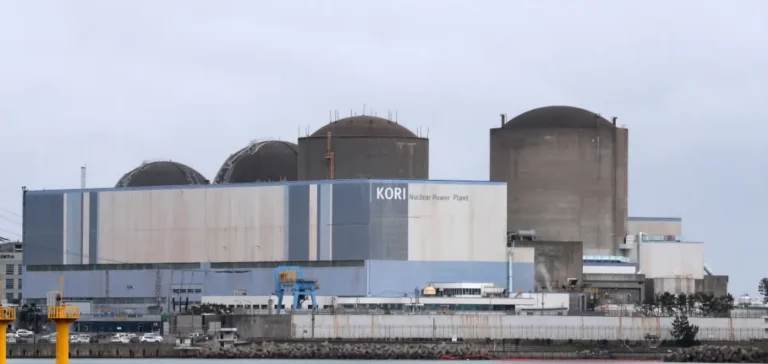South Korea’s Nuclear Safety and Security Commission (NSSC) has officially approved the decommissioning of reactor number one at the Kori nuclear power plant, located near Busan, thus marking the start of the country’s first nuclear decommissioning process. This reactor, a 576-megawatt electric (MWe) pressurised water model, permanently ceased commercial operations on 18 June 2017 after nearly four decades of service. Korea Hydro & Nuclear Power (KHNP), the state-run operating company, had submitted a detailed decommissioning plan for approval in May 2021. The final validation by the NSSC follows an extensive technical and regulatory review phase, notably conducted by the Korea Institute of Nuclear Safety (KINS).
Rigorous technical planning
According to KHNP’s official announcements, the entire decommissioning process is expected to extend until 2037, involving a clearly defined series of progressive procedures. Starting next month, the company will begin dismantling activities within the turbine hall facilities. One critical step in this operation will be the scheduled transfer in 2031 of used nuclear fuel from the storage pool to an onsite dry storage facility at the plant. The final dismantling of radioactive systems will follow, with a target completion date set for 2037.
Strategic industrial cooperation
The decommissioning of Kori 1 also has significant industrial implications for South Korea’s nuclear sector. As early as September 2017, the Korea Atomic Energy Research Institute (KAERI) established technical partnerships with several domestic companies to develop the necessary expertise for the project. Among the industrial groups involved are notably Kepco Plant Service & Engineering and Doosan. Specific areas covered by these partnerships include dismantling technologies, land contamination measurement, and radioactive waste management.
Enhanced transparency and regulatory oversight
The NSSC emphasizes that, given the unprecedented nature of nuclear decommissioning in the country, it will closely and continuously monitor all operations. According to NSSC Chairman Choi Won-ho, “We will rigorously inspect every stage of the decommissioning process to ensure public safety and transparently disclose inspection results.” For his part, KHNP CEO Hwang Joo-ho stated that the project would be conducted with total transparency towards local populations and stakeholders.
This first South Korean nuclear decommissioning experience will serve as a basis for progressively internalising national technical competencies in the post-operational management of civilian nuclear installations.






















